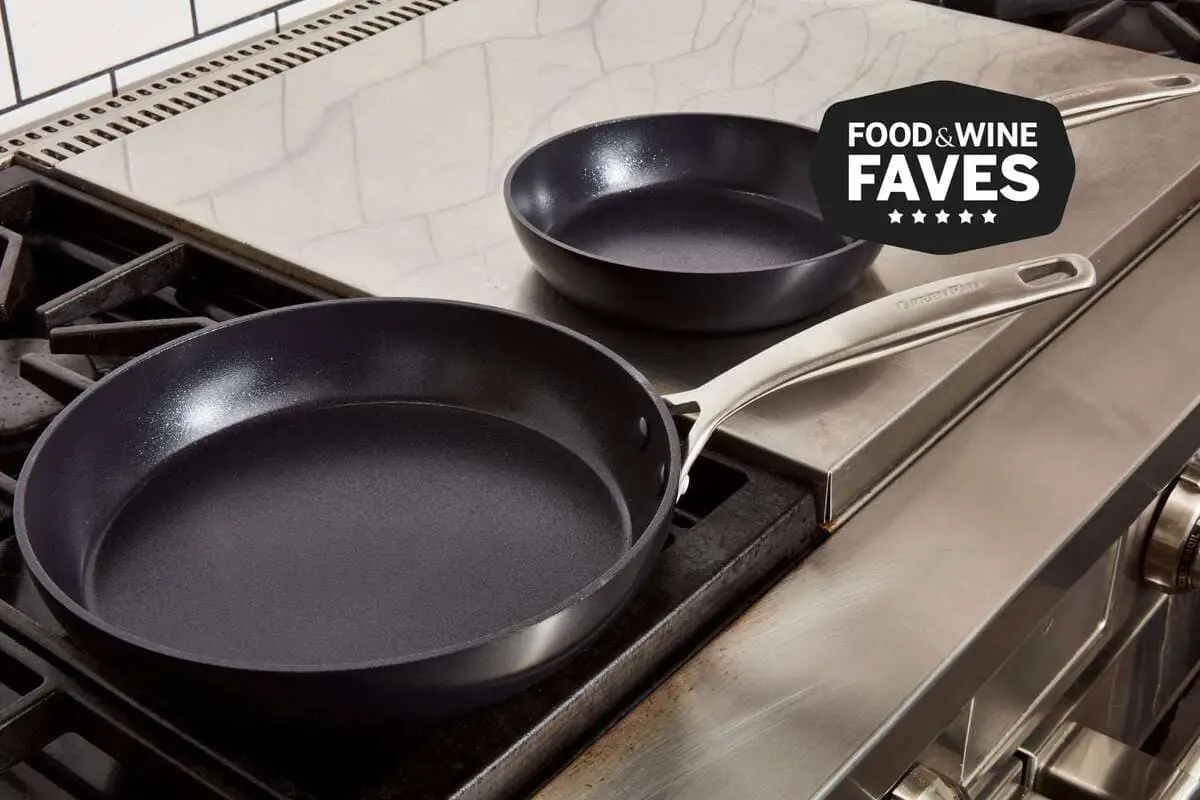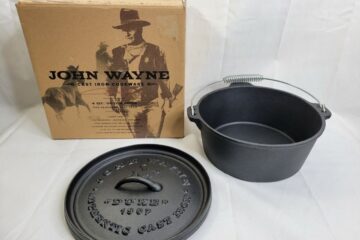Non-stick pans are a popular choice among home cooks for their ease of use and cleaning. However, when it comes to using them on an induction stove, there are some concerns. Induction stoves require cookware that is magnetic, and not all non-stick pans are magnetic. So, can we use non-stick pans on induction stoves?
The answer is yes, but with some caveats. There are non-stick pans available in the market that are specifically designed for use on induction stoves. These pans are made with a magnetic base that allows them to work with the stove’s magnetic field. However, not all non-stick pans are compatible with induction stoves, and it’s important to check the manufacturer’s recommendations before using them.
Understanding Induction Stove
How Induction Stove Works
Induction stoves are a popular type of cooktop that uses electromagnetic energy to heat up the cookware. The stove is made up of a coil of copper wire underneath a glass or ceramic surface. When an electric current passes through the coil, it creates a magnetic field that induces a current in the cookware. This current generates heat, which cooks the food.
One of the main advantages of an induction stove is that it heats up quickly and is very efficient. It also provides precise temperature control, which is useful for cooking delicate dishes. Additionally, induction stoves are safer than gas stoves since there is no open flame.
However, not all cookware is compatible with induction stoves. The cookware must have a magnetic base, which means that it must contain iron. This is because the magnetic field generated by the stove only affects magnetic materials.
Non-stick pans can be used on induction stoves, but they must have a magnetic base. Most non-stick pans have a non-magnetic aluminum base, so it is important to check the manufacturer’s specifications before using them on an induction stove.
Non-Stick Pans
Non-stick pans are a popular choice for cooking due to their convenience and ease of use. They are especially useful when cooking foods that tend to stick to the pan, such as eggs or pancakes. In this section, we will discuss what non-stick pans are, how they work, and the benefits of using them on an induction stove.
What Are Non-Stick Pans?
Non-stick pans are typically made with a coating that prevents food from sticking to the surface. The coating is usually made of a material such as Teflon or ceramic. The non-stick coating is applied to the pan’s surface, creating a smooth, slick surface that allows for easy food release.
How Do Non-Stick Pans Work?
Non-stick pans work by creating a barrier between the food and the pan’s surface. The non-stick coating prevents the food from sticking to the pan, making it easier to cook and clean up. The coating also allows for less oil or butter to be used, making for a healthier cooking option.
Benefits of Using Non-Stick Pans
There are several benefits to using non-stick pans on an induction stove. Firstly, non-stick pans are typically lightweight and easy to handle, making them ideal for everyday cooking. Secondly, non-stick pans require less oil or butter, making them a healthier option. Thirdly, non-stick pans are easy to clean, requiring only a quick wipe down with a damp cloth.
When using non-stick pans on an induction stove, it is important to ensure that the pan is compatible with induction cooking. Most non-stick pans are made with a non-magnetic aluminum base, which is not compatible with induction cooktops. However, there are induction-compatible non-stick cookware options available on the market.
Can We Use Non-Stick Pans on Induction Stove?
When it comes to cooking on an induction stove, many people wonder if their non-stick pans will work. The answer is yes, but there are some factors to consider.
Factors to Consider
The first factor to consider is the material of the non-stick pan. Induction stoves require cookware that contains ferromagnetic materials, such as iron or steel. Many non-stick pans have an aluminum base, which is not magnetic and will not work on an induction stove.
Another factor to consider is the quality of the non-stick coating. High-quality non-stick coatings can withstand high heat and are less likely to scratch or chip. Cheaper non-stick coatings may not be able to handle the heat of an induction stove and can release harmful chemicals when damaged.
Types of Non-Stick Pans Compatible with Induction Stove
There are non-stick pans available that are compatible with induction stoves. These pans have a magnetic base, usually made of stainless steel or cast iron, that will work on an induction stove. Some examples of non-stick pans compatible with induction stoves include:
- T-fal E93808 Professional Total Nonstick Fry Pan
- GreenPan Valencia Pro Ceramic Non-Stick Frypan
- All-Clad HA1 Hard Anodized Nonstick Fry Pan
Precautions to Take While Using Non-Stick Pans on Induction Stove
While non-stick pans can be used on an induction stove, there are some precautions to take. First, avoid using high heat settings, as this can damage the non-stick coating. Second, avoid using metal utensils, as these can scratch the non-stick coating. Finally, be sure to clean the pan thoroughly after each use, as any residue can damage the non-stick coating over time.
Conclusion
In conclusion, it is possible to use non-stick pans on an induction stove, but only if the pan has magnetic technology. This is because induction stoves work by creating a magnetic field that heats up the metal in the cookware, and non-magnetic materials like aluminum will not work.
It is important to note that not all non-stick pans are suitable for use on an induction stove, so it is important to check the manufacturer’s instructions before using a non-stick pan on an induction stove. Additionally, it is recommended to use a pan with a flat bottom to ensure even heating and to prevent scratching of the stove’s surface.
Cast iron and stainless steel cookware are generally the best options for use on an induction stove, as they are magnetic and can withstand high temperatures. Enameled cast iron and some types of stainless steel cookware are also compatible with induction.
It is important to keep in mind that while non-stick pans are convenient for cooking and cleaning, they may not be the best option for high-heat cooking or searing. This is because non-stick coatings can break down at high temperatures, releasing toxic fumes. Therefore, it is recommended to use other types of cookware for high-heat cooking, such as cast iron or stainless steel.
Overall, it is possible to use non-stick pans on an induction stove, but it is important to choose the right type of pan and to use caution when cooking at high temperatures. By following these guidelines, users can enjoy the convenience of non-stick cookware while still making the most of their induction stove.



